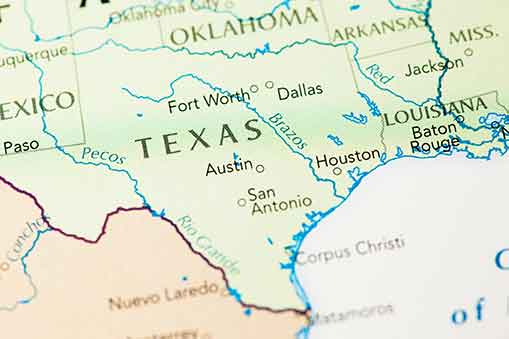While sanctuary laws jeopardize lives from coast to coast — and risk new federal sanctions for enabling illegal aliens to walk free — Texas has gone a different way. At least on paper.
With enactment of Senate Bill 4 in 2017, Texas became one of a handful of states to outlaw sanctuary policies.
“SB 4 has clearly made a difference,” says Jackson County Sheriff A.J. Louderback. “Sanctuary laws are a declaration of anarchy, and cities like Austin were heading in that direction until SB 4 was passed.”
Benefiting from cooperation by Texas law-enforcement agencies, U.S. Immigration and Customs Enforcement (ICE) has been arresting and detaining more criminal aliens in the Lone Star State since SB 4 became law.
Likewise, the Texas Department of Public Safety records show continued increases in bookings of illegal aliens into local jails.
Exactly how much of those increases are directly attributable to SB 4 is not known. But, clearly, there is room for improvement as Texas’s larger cities engage in a form of passive resistance to the law.
Though SB 4 allows police officers to question the immigration status of anyone they arrest or detain, including during routine traffic stops, the law does not require such questioning. And big-city police departments generally eschew such queries.
“Our officers won’t ask unless the individual is involved in some criminal investigation as a suspect under arrest, said Mike Helle, president of the San Antonio Police Officers Association.
Going further down the slippery slope, Austin City Council passed resolutions instructing police to arrest fewer people for driving without valid licenses. Officers were also ordered to inform people they stop that they may refuse to answer any questions pertaining to immigration status.
“Our ‘Freedom City’ policies are basically an expansion of the old sanctuary city policies,” gloats council member Greg Casar. “They pick up where sanctuary policies were cut off.” Louderback calls such moves a violation of the spirit, if not the letter, of the state law.
The cities of San Antonio, Austin, Dallas and Houston, along with several other local entities, challenged SB 4 in court, but the state prevailed in a March 2018 Fifth Circuit Court of Appeals ruling.
Nine months later, San Antonio Police Chief William McManus appeared to run afoul of SB 4 when he released a dozen trafficked migrants found inside a tractor-trailer truck. Investigating possible violations of the anti-sanctuary law, the state Attorney General’s Office is currently taking depositions from officers involved in the incident. “It’s not going away like our chief thinks,” said Helle, who has criticized McManus’s actions.




